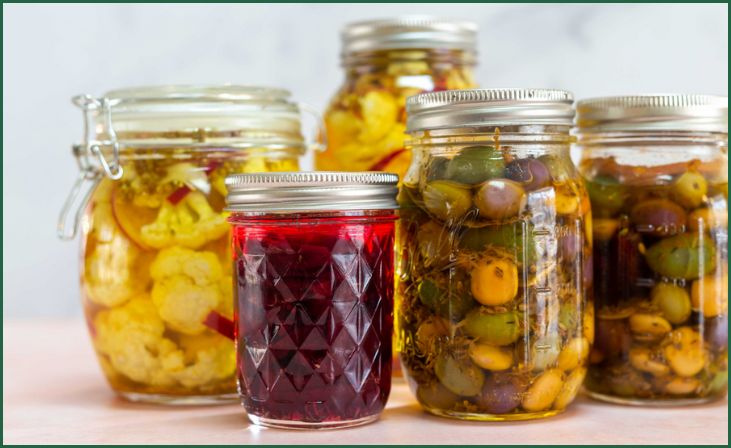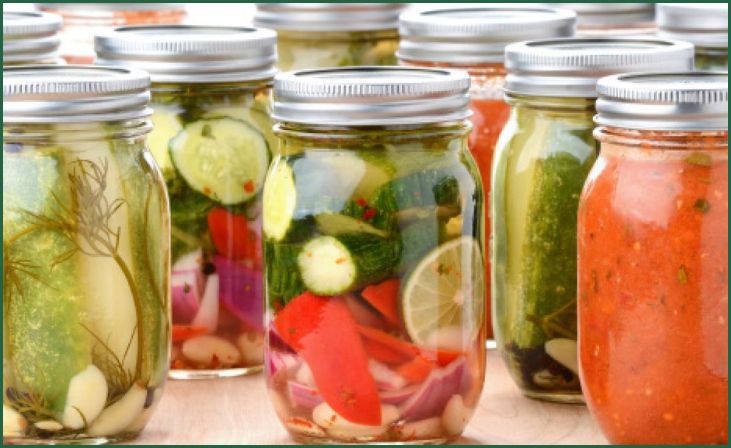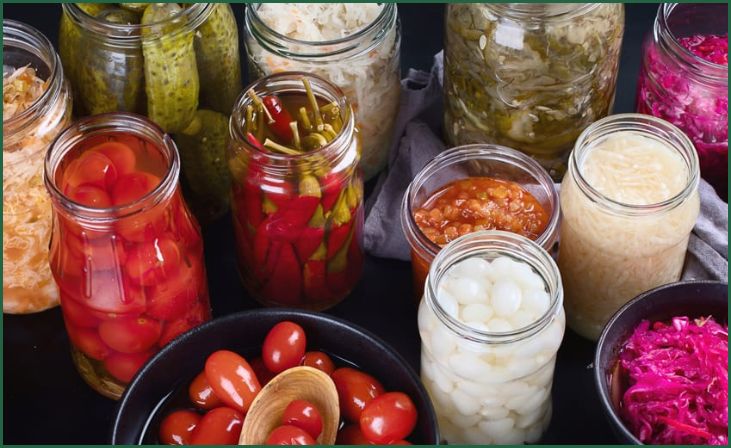In the quest for mental well-being, a surprising ally emerges from the realm of gastronomy—fermented foods. The link between diet and mood is gaining attention, and “Fermented Foods for Depression” takes center stage in this exploration. Depression, a prevalent mental health concern, prompts us to consider unconventional solutions, and fermented foods offer a tantalizing possibility.
This article unravels the science behind this intriguing connection, navigating through the gut-brain axis, the role of probiotics, and the array of fermented delights that may hold the key to lifting one’s spirits. Join us on a journey where the kitchen becomes a haven for both the palate and the mind, as we delve into the potential of fermented foods to positively influence mental health.
Table of Contents
ToggleUnderstanding Depression
Depression, a prevalent mental health condition, goes beyond occasional feelings of sadness. It affects how we think, feel, and handle daily activities. Recognizing the significance of addressing mental health is the first step toward a holistic well-being approach.
The Gut-Brain Connection

Recent scientific discoveries have shed light on the gut-brain connection, revealing that our digestive system may play a pivotal role in influencing our mental state. The microbiome, a community of trillions of microorganisms residing in our gut, appears to have a direct impact on mental well-being.
Fermented Foods: A Natural Solution
Enter fermented foods, a category that includes a variety of delicious and nutrient-packed options. These foods undergo a fermentation process that not only enhances their taste but also promotes the growth of beneficial bacteria. This bacterial army, in turn, can positively influence our gut health.
Probiotics and Depression
The star players in fermented foods are probiotics, the friendly bacteria known for their health-boosting properties. Studies have suggested a connection between probiotics and mood regulation, making fermented foods a potential natural solution for those dealing with depression or anxiety.
Read Also: DIY Fermented Ginger Soda Pop
Fermented Foods Rich in Probiotics

When it comes to incorporating fermented foods into your diet, the options are diverse and delectable. Consider adding kimchi, sauerkraut, yogurt, and kefir to your meals. These foods not only provide a rich source of probiotics but also boast a range of nutritional benefits.
Prebiotics: Nourishing the Gut
But it’s not just about probiotics; prebiotics also play a crucial role. These are substances that nourish the good bacteria in your gut, creating an environment conducive to their growth. Foods like garlic, onions, and bananas are excellent sources of prebiotics.
Don't just scroll, subscribe!
BuzzTrail's unique web-stories are the cure for boredom you've been waiting for.
Balancing the Diet
Creating a gut-friendly diet involves balance. While incorporating fermented foods, it’s essential to maintain a well-rounded diet with a variety of fruits, vegetables, and whole grains. This balance ensures that your body receives a spectrum of nutrients for optimal function.
Other Benefits of Fermented Foods
Beyond their potential impact on mental health, fermented foods offer a plethora of benefits. Improved digestion, enhanced nutrient absorption, and a strengthened immune system are just a few of the positive outcomes reported by those who embrace these culinary delights.
Caution and Moderation
While the benefits of fermented foods are compelling, it’s crucial to approach them with moderation. Excessive consumption can lead to side effects, and individuals with allergies or sensitivities should exercise caution. Consulting with a healthcare professional is advisable, especially for those with existing health conditions.
Recipes for Fermented Delights
For those eager to embark on a culinary adventure, trying your hand at making fermented foods at home can be both rewarding and fun. From simple sauerkraut to tangy yogurt, the possibilities are endless. Experimenting with recipes allows you to tailor these creations to your taste preferences.
Read Also: Do Fermented Foods Help You Lose Weight
Personal Stories and Testimonials
To bring the benefits of fermented foods to life, let’s explore the stories of individuals who have experienced positive transformations. Real-life accounts of improved mood, energy levels, and overall well-being showcase the potential impact of including fermented foods in your diet.
Professional Opinions
Nutritionists and healthcare professionals also weigh in on the discussion. Their insights provide a well-rounded perspective on the role of fermented foods in mental health care. Recommendations on portion sizes, ideal combinations, and potential synergies with other lifestyle factors offer valuable guidance.
Fermented Foods in Different Cultures

It’s fascinating to observe how various cultures around the world have embraced fermented foods for centuries. From kimchi in Korea to sauerkraut in Germany, each culture brings its unique recipes and traditions to the table. Exploring these diverse culinary landscapes adds a rich tapestry to our understanding of fermented foods.
Conclusion
The journey into the world of fermented foods for depression unveils a promising avenue for those seeking holistic approaches to mental well-being. The symbiotic relationship between gut health and mood regulation opens doors to explore a variety of flavorful and nutritious options. By integrating fermented foods into your diet, you embark on a delicious adventure that not only tantalizes your taste buds but also nurtures your mind.
FAQs
Can fermented foods really help with depression?
Can fermented foods really help with depression?
Scientific evidence suggests a potential link between the probiotics in fermented foods and mood regulation.
How much fermented food should I consume for optimal benefits?
How much fermented food should I consume for optimal benefits?
Moderation is key. Consult with a healthcare professional to determine the right amount for your individual needs.
Are there any side effects of consuming too much fermented food?
Are there any side effects of consuming too much fermented food?
Excessive consumption may lead to digestive discomfort. It’s essential to balance your diet.
Can I make fermented foods at home?
Can I make fermented foods at home?
Absolutely! There are many simple recipes available for homemade fermented delights.

